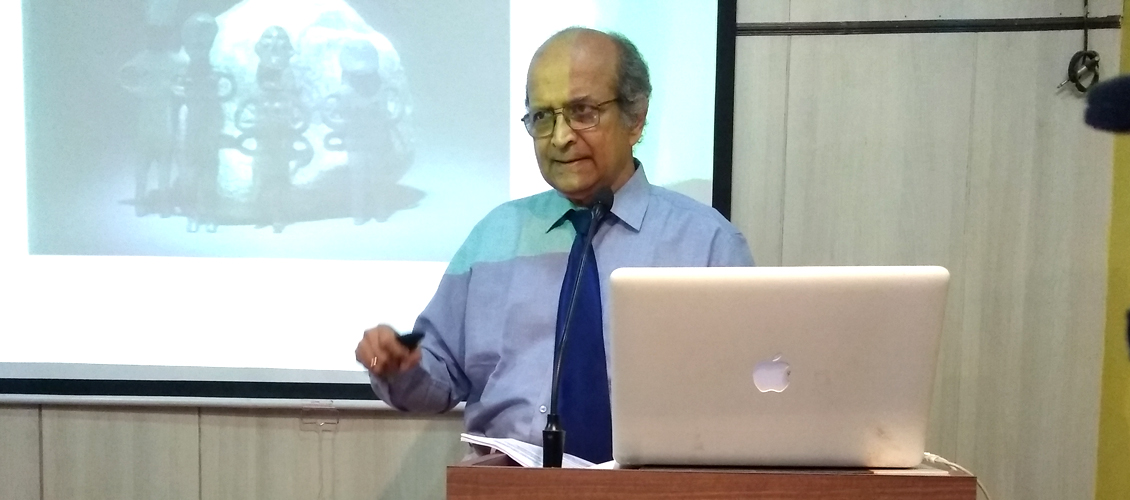
In today s modern world, obesity has become an issue of vital importance to everyone. Gone are the days when Indians could simply ignore obesity as something that occurs frequently in the US and not something we need to worry about. In a seminar on Thursday, at Moneylife Foundation, Vithal Nadkarni, former science editor at Times of India, said that it is not important to search for the reasons behind obesity but one should rather be looking at ways to curb or even reverse obesity.
Mr Nadkarni says, It is easy for some to blame our genes for the mess we have put our bodies into, but one should realise nature did not design our bodies to handle or counter the problems encountered by our detrimental eating habits. These days nutritional diets have become quite a fad with innumerable different kinds available for a persons particular needs.
According to Mr Nadkarni healthy eating does not need to involved complicated and immensely restrictive diets. He says simply following the conventional wisdom of filling a plate with quarter portions of protein and carbohydrates and half portion of vegetables is more than enough for your well-being. Answering the question of what is the ideal everyday meal really depends on multiple factors - who s eating, where and in what condition/stage of life. For instance, an ideal meal in West Bengal could be Fish curry and rice with a side of vegetables and one in Mexico could be rice, bean and tortillas.
During the seminar, Mr Nadkarni discussed the well-known "Paleo Diet which essentially limits a person to the foods that became common in the Paleolithic era. Such a diet mainly consists of lean meat and other meat products. He questioned the validity of these assumptions/hypotheses by asking how one can be sure that humans from the paleolithic period lived purely on a non vegetarian diet. He said "about 70% of the diet of cavemen came from plants".
In response to the numerous diets that one can follow these days, the former Science Editor, said one should understand that there isn t one optimal diet that needs to be followed, but rather they consider the immense adaptability of humans in various habitats. Humans can survive in any reasonable environment by combining many different foods to create many different diets.
"We have gotten so good at processing foods that for the first time in human evolution, many humans are receiving more calories that they can burn in a day," he added.
Mr Nadkarni wants us to become more aware of the calorie raising consequences of a highly processed diet. But this does not mean that one needs to embrace the other extreme end of adopting a diet entirely based on raw plant based foods.
Mr Nadkarni spoke at great length about certain super foods that can be completely substituted for meats. Rice is one such food that has been demonised for its excess carbs and low protein. According to him, rice consumed along with enough unrefined starches and vegetables can counteract the low protein. Additionally, one can boost the iron, potassium and calcium content along with B6 and B12 Vitamins by using rice cooked the previous day, soaked in water and stored in an earthenware pot. He further went on to talk about the wonders and simplicity of Varan Bhaat a ubiquitous rice and lentil mix with other essential ingredients - turmeric, cumin seeds, asafoetida and salt. This fulfils the low fat, high carb, high cereal lentil diet needs rather than the harmful high fat, high meat diets.
Foods like chhaas or buttermilk, which are made from yogurt are used as cooling refreshments in summer and are rich in proteins, calcium, Vitamins B-2, B-12, potassium and magnesium. In his opinion, Ragi (finger millet) deserves to be at the top of the food grain pyramid. It is a rich source of carbs, gluten free and high fibre and calcium content. This is also true for other protein and fibre packed mineral rich millets such as Jowar (Sorghum) and Bajra (Pearl Millet). His advice was to initially start by mixing the flours - wheat with Jowar or Ragi, for instance - and also vary the forms - have them cooked as Upma, Porridge or as whole grain substitutes for rice and rotis, pancakes or dosas.
On the question of a vegetarian or non-vegetarian diet, he said that vegetarians receive most of their protein from lentils. Every one cup of serving contains 18gm of protein which equals the quantity attained from eating three whole eggs. Lentils have the third-highest level of protein by weight of any legume or nut, coming right after Soya Beans and Hemp or Flax Seeds. There many clues that human beings are herbivores (plant-eaters) rather than carnivores (meat-eaters). He said the for humans the secret of staying slim and healthy would be a low-fat, high-fibre high-carbohydrate diet. As long as people eat any reasonable assortment of unprocessed plant foods to get enough calories, they automatically get enough protein. His advice on meat was to stick to lean meat such as boneless chicken and turkey.
Considering sprouts, he said that they have an incredible nutritional density. Sprouts and Micro-Greens have huge amounts of live enzymes in fact, some sprouts can have up to 100 times more enzymes and nutrition than fully grown, raw fruits and vegetables. Enzymes are magical catalysts for all your body s functions, including digestion. He further went to talk about the wonders of the Moringa plant (drumstick) and how everything from its leaves to roots is good for the health.
In a very informative yet condensed seminar, Mr Nadkarni also talked about the wonders of simple foods like bananas, amla, tomatoes, beets and spinach. He also talked about using healthy low trans fat oils for the purpose of cooking.

